Camping with disabled children
Camping with your disabled child may seem daunting. Here you’ll find tips on adapting your trip to the specific needs of your family.
We’re here to help ensure your trip is a positive one for all of you.
The most important thing is to find a campsite with facilities suited to your families’ requirements, to help your child have a comfortable and stress-free camping experience.

Before you leave…
Be sure to check the facilities offered by your campsite. There are thousands in the UK, so there will definitely be loads of campsites which offer exactly what your child needs to have a comfortable and enjoyable camping experience.
Whether you need wheelchair ramps, a quieter campsite, access to electricity or anything else, there will be a campsite that suits your needs. It is definitely worth calling the campsite in advance, just to check that they offer the facilities you need, and to ask any more specific questions to ensure you and your family will be able to enjoy your experience.
You could ask for a specific plot, for example near the toilets.
It’s also always worth checking that the campsite allows you to park next to your pitch.
Don’t forget to have a trial run
If it’s your first time, it may be worth putting up a tent in the garden and having a practice at camping before you actually get to the campsite. This will help children who might be overwhelmed by the new environment adjust to the camping experience before they arrive.
Why not have some fun in the tent once you’ve put it up. You could take pillows and sleeping bags into the tent, eat some snacks and play a few games to help children relax.
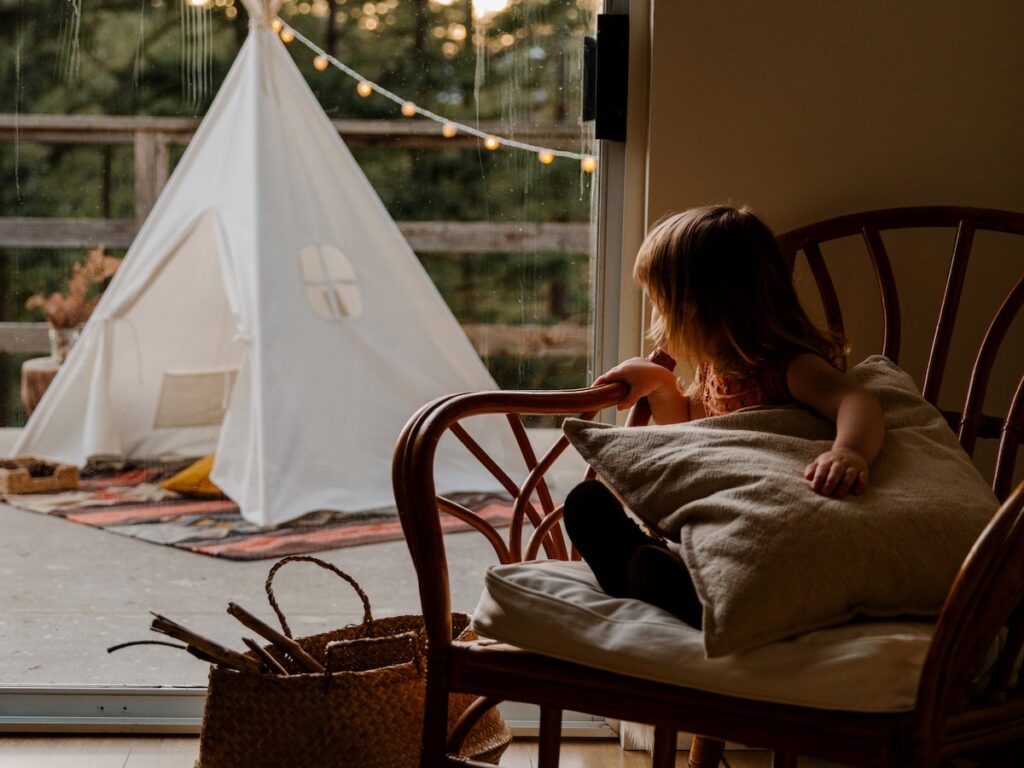
Choice of tent
If it is your first time camping with your child, you could consider buying a new tent.
Or if it is your first-time camping, (check out Help and tips for your first camping trip for loads of tips) look out for a tent that is easy to put up and take down, just to make the whole experience that bit easier.
A tent that is quick to put up also means that if you need to leave early, you don’t have to spend hours trying to take down a complicated tent. I would suggest trying a pop-up tent or even an air tent as you don’t need to faff about with poles.
Camping safety
You may be worried about keeping your child safe during the camping trip, especially if they are prone to running off. Camping with other families often helps with this as it means there are more adults to look out for your family, you could even come along with another adult (a family member or friend) just so that there is another pair of eyes!
For a stress-free sleep, zip the tent up to the top so that small kids can’t reach the zip and won’t be able to roam off in the night.
It is worth checking the local area on a map before choosing your campsite, so you can avoid being too close any potentially risky areas, such as river or road.
You can also have a read here with more tips on how to make your camping pitch area safe.
The importance of a safe space
Be sure to give your child a space where they can wind down, and spend some time alone, if that’s something that they need at home.
A car is especially good because they can plug in and watch TV or play games on an iPad or phone. You know what helps your child to feel calm, so don’t put pressure on yourself to have a screen-free camping trip if you know that that won’t actually suit their needs.
If your children are happy and occupied it also means that you’ll have the chance to get some cooking done, or chat with friends and loved ones around the campfire.
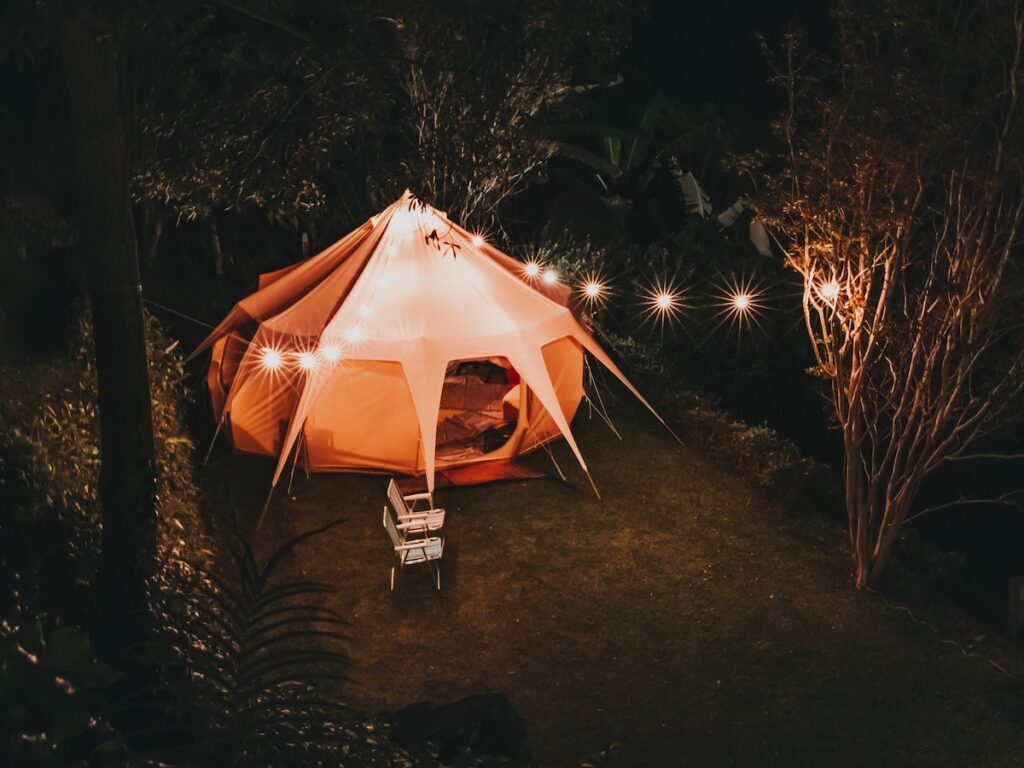
Cooking
To give yourself some more time to support your child, as adjusting to the new environment may be challenging, plan easy one-pan meals in advance. Pasta Ready in 10 is always a great choice because it is so stress-free, but anything that you can cook quickly in one pan works as well or cook ahead and bring meals with you. There’s no need to put pressure on yourself to do everything at once, so do anything that saves your time and energy!
Have a look at guide to Camping Favourites For Fussy Eaters for ideas on easy meals on the go.
And don’t forget the timeless takeaway to remove all the cooking effort. Quite a few campsites will keep a list of delivery menus at their reception, so just ask.
Camping activities
I would recommend planning some accessible activities in advance. You can check out what there is to do near your campsite before you leave. Why not consider trying out fishing, exploring a nearby town or doing some campsite crafts. Or go for walks in the nearby countryside, if you’re staying in the forest you could even help your child to make a den (for a guide to making bivouacs why not check out den building). If your child uses a wheelchair, then check out which beaches nearby have wheelchair access.
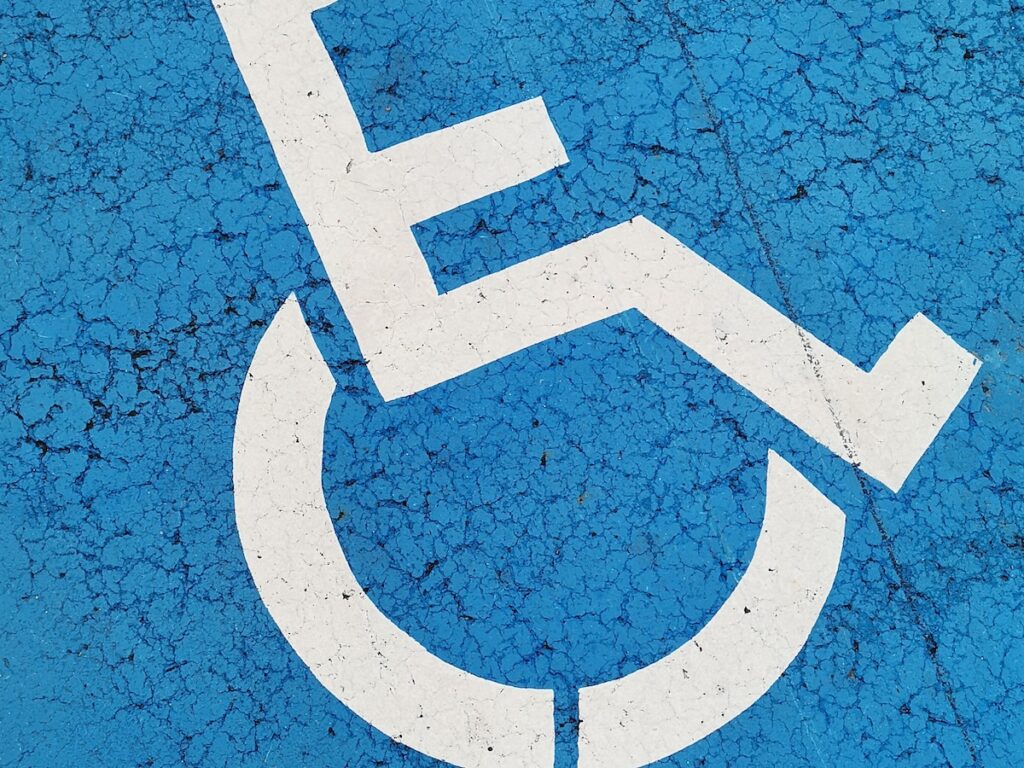
If the thought of travelling away from the campsite when you’ve only just got there is a bit overwhelming, then there’s so much you can do without having to leave the campsite.
You’re in the countryside already so there’s no need to jam-pack every day with activities if that doesn’t suit your family. Have a look here for loads of camping themed science experiments you could do with children. These are great to help kids get curious about the natural world around them, and they are equally fun and educational.
You could also play card-games such as Uno or play charades around the campfire.
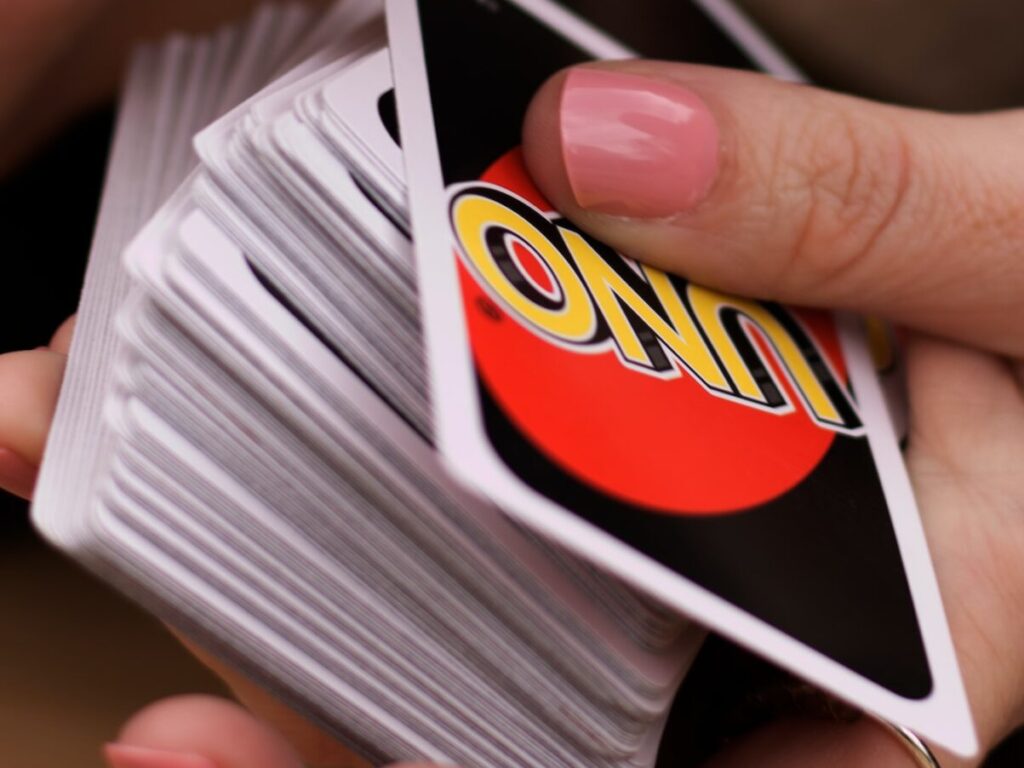
Or another favourite game and super easy to learn is Exploding Kittens.
1 box for up to 4 players, but you can add extra packs for more players. We play with 2 boxes in our family. So much fun and you can pick up the rules after 1 trial game. And like the box says, it contains kittens, explosions and laser beams (and sometimes goats!).
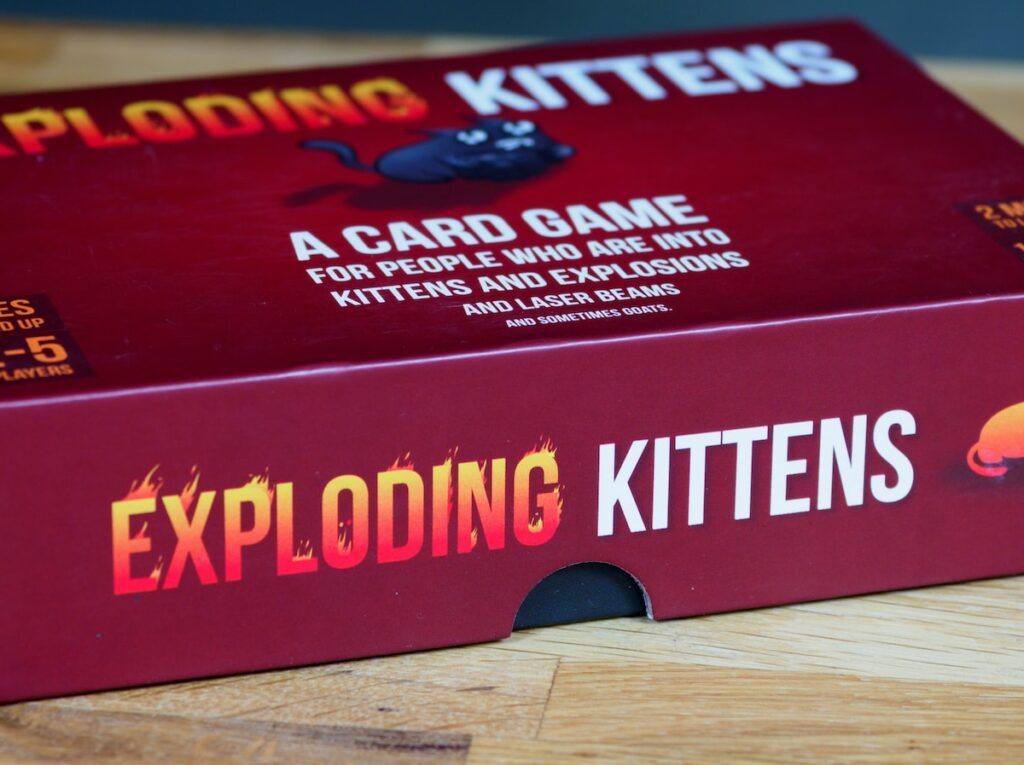
Not into card games, well just go old school and get everyone to tell as story around the camp. Much more atmospheric around a campfire, so look for campsites which allow campfires to complete your camping experience.
Check out how to light a campfire if you’re new to lighting fires or just fancy a refresher or want tips on different fire lighting techniques.
Each child has different needs, and you’ll soon work out what suits you and your child, and what doesn’t.
Don’t put pressure on yourself to have the ‘perfect’ camping experience. There may be a few bumps on the way, but ultimately you’ll be happy to have let your child experience the joy of camping and getting closer to nature.
Here’s me signing out and thank you so much for reading.
Lily Crooke / Environmental and Recreational author
